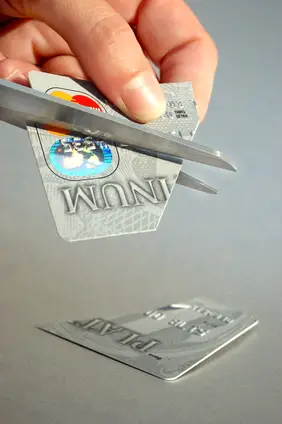With economies crashing all over the world and a ripe struggle for employment among the young generation, money is tight- at least when it comes to shelling out vast amounts at the same time- for the average American family. So when one gets to college, there is no other way left but to take out a student loan to fund your education. In this article we shall see Student Loans Ever Get Written Off?
A student loan is a money borrowed from the government or a private organization to fund your education through college. It is one of the most advantageous options for students from financially weak family backgrounds. However, any loan always has more disadvantages than advantages from an overall perception. Student loans have a lower interest rate than other loans and have to be repaid after the student has finished their education. Read on to know more about them, especially if they ever are going to get written off from your records, regardless of whether you have fully paid it.

How Do You Apply for a Student Loan?
You have to fill out a Free Application for Federal Student Aid (FAFSA), which entails financial details of the concerned student and parent(s). This form is then sent to the educational institution where the student wishes to be admitted. Then, after several evaluations, it is decided whether or not they are eligible for the loan.
An important point to notice here would be that sometimes if you are a lucky one, this aid might come as a scholarship or grant if they see excellent academic potential in the candidate. As you already know, only loan money has to be repaid; scholarship and grant money is free money as they do not have to be repaid.
If you prefer a private loan instead of a government/federal one, you have to apply directly to the lender- a bank, credit union, or school. Generally, these sorts of private loans include signing a promissory note, a legal document bounding you to repay your loan amount plus interest later on in life, as per the agreed tenure and other terms and conditions. In addition, private loans usually have a higher interest rate and other disadvantages that depend solely on the lender.
If you are going to take a loan, federal ones would be recommended over private ones.
Types Of Student Loans
There are two types of student loans- federal and private.
Federal Student loans are further subdivided into:
- Direct Subsidized loan- These are loans available for undergraduates based on whether or not they need the money. They also have a relief period of six months after the student has completed their education course and needs to start repaying the loans.
- Direct Unsubsidized loan- These are loans for both undergraduate and graduate courses, for which you do not have to show any proof of whether or not you need the money.
- Direct PLUS loan- These are loans that a parent or a guardian takes out for a student, and these require a FAFSA form and a credit check.
How Do You Repay a Student Loan?
Repaying a student loan will take you anywhere between 5-15 years (on average), depending on the amount you initially borrowed, the interest rate, your income, and whether it was a federal or private loan.
For federal loans, you will provide a repayment schedule stating how much you need to pay each month to repay your loan on time. In addition, several other plans come under the federal loan repayment category, such as Graduated Repayment Plans, Extended Repayment Plans, and Income-based Plans.
For private loans, the terms for repayment depend solely on the lender and might vary from person to person.
In cases of non-payment, there are severe consequences, which you do not want to get into. So, if you are taking out a loan, be mentally prepared for the worst.
Do Student Loans Ever Get Written Off?
The article is mainly concerned with this question, and to answer it, getting your student loan written off is possible but extremely rare. And even if they are forgiven, it will be after years of trying to repay it anyway. Another disadvantage is that you will be charged with a huge tax bill if your student loan has been let off.
Several programs facilitate getting your student loan written off.
For example, if you are a teacher teaching for at least five years at a low-income package, you are eligible for student loan forgiveness of up to US Dollar 17,500. You are also eligible for student loan forgiveness if you are a federal or non-profit worker after at least 120 payments.
Keep in mind that only federal loans can be private loans solely depending on the lender, and who wants to let off free interest money on an amount they lent years ago?
What Are Some Alternatives to Taking Out a student loan?
You can apply for a scholarship or grant instead of a loan; this is another reason you should keep your grades high in high school. These are applicable only for academically strong students or even if you are extraordinarily good at a sport. A second option would be to start working part-time and saving in high school or working a job or two while studying in college to keep the tuition paid, one semester at a time. Another tip would be to be careful with your finances; you do not want to splurge on hard-earned money on drinks every other Friday.
Conclusion
A student loan does more harm than good. But if you are going to take it out anyway, be responsible as it is tough to get them written off.
Frequently asked questions (FAQs):
- Will unpaid student loans ever go away?
They fall off your credit report seven years from the last payment.

